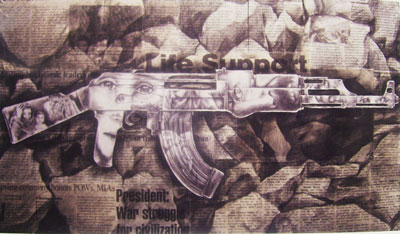All Nonfiction
- Bullying
- Books
- Academic
- Author Interviews
- Celebrity interviews
- College Articles
- College Essays
- Educator of the Year
- Heroes
- Interviews
- Memoir
- Personal Experience
- Sports
- Travel & Culture
All Opinions
- Bullying
- Current Events / Politics
- Discrimination
- Drugs / Alcohol / Smoking
- Entertainment / Celebrities
- Environment
- Love / Relationships
- Movies / Music / TV
- Pop Culture / Trends
- School / College
- Social Issues / Civics
- Spirituality / Religion
- Sports / Hobbies
All Hot Topics
- Bullying
- Community Service
- Environment
- Health
- Letters to the Editor
- Pride & Prejudice
- What Matters
- Back
Summer Guide
- Program Links
- Program Reviews
- Back
College Guide
- College Links
- College Reviews
- College Essays
- College Articles
- Back
Sojourn by Andrew Krivak
“This book is to be neither an accusation nor a confession, and least of all an adventure, for death is not an adventure to those who stand face to face with it. It will try simply to tell of a generation of men who, even though they may have escaped shells, were destroyed by the war.”
-Erich Maria Remarque, All Quiet on the Western Front
The quotation above is focusing on the generation that was around eighteen years old during the WWI, because they grew up being brainwashed that wars were glorious and they had to make sacrifice for the war. As a result, a large amount of them died on the front, and the many others who survived had lives which were ruined in different degrees. Authors chose this generation to show the cruelness of WWI, since they basically lost everything in this war, including their close friends and their family members. Besides, they experienced severe mental illness which would torture them forever. And Jozef in The Sojourn was one of the great examples who survived but had a ruined life.
Jozef grew up thinking that he was born to be a sharpshooter. When he was 17, he joined the war with his brother Zlee, even though he was actually underaged. Misled by the propaganda, he wanted to be a hero and thought that war was glorious, and it was a way to prove himself better and stronger than others, however, he did not talk about this directly. Nevertheless, the war was cruel and cold-blooded. Moreover, some of this generation were forced to go to war unwillingly, so they had no idea what the war was really like, before they joined the army. For instance, on page 60, a wounded soldier told Jozef’s family, “Tibor had been shot and killed point-blank in the trench by his commanding officer for refusing to attack when ordered.” Clearly, Tibor had not idea that a soldier needed to listen to all things commanders said, or he would be killed by his own commander. Tibor was just one of the innocent youths who were forced to fight, and all the army want them for as cannon fodder.
More importantly, when the war ended, most of these survivors lost their family members and their close friends. Jozef was one of those who lost everything. Jozef lost his best and closest brother, Zlee, in the war. Afterwards, he lost his new friend Holub. At last, when the war was over, he came home and found out that his father was dead. After the war, they had no friends, no close family members, and no spiritual support. They became people without roots and loves, and they even found no place belonging. And that is probably why they suffered such severe mental illness. In The Sojourn, Jozef dreamed about his mother several times, which suggested that his mom was his only spiritual support, who certainly loved him. Because Jozef was hopeless, he also imagined Zlee, who was his close friend’s, ghost, the author wrote on page 140, “And I never stopped thinking about Zlee, so that when I awoke in the early morning and rose covered in the sweat of my nightmares, I sensed my own will had summoned him. And I addressed his ghost and said , ‘Is it better where you are? Have they forgiven you for all these?’” He also dreamed about the people that he had killed, on page 139, “ And yet from more vivid and persistent life I began to see that faces of the men whom I’d held in the crosshairs of my sight before I fired them.” As a result, Jozef suffered extremely from his dreams, which was an expression of his hopeless and regretful heart. And the reason might be that he could not express his fear during the wartime which accumulated, and finally he was tortured when he had time to to recall his memory and emotions for what he had done.
By writing about these young soldiers’ life, the writer expressed his anti-war opinions. These youths, who were ought to be healthy and hardworking, was either killed or ruined by WWI. They were brainwashed that they could be remembered and become a hero by joining the war. But at last, they became miserable people, who had no knowledge about, who lost all their mental support, and who suffered nightmares in the rest of their lives.

Similar Articles
JOIN THE DISCUSSION
This article has 0 comments.

The book emphasize on the misleading propagandas and their impacts on families in wars.